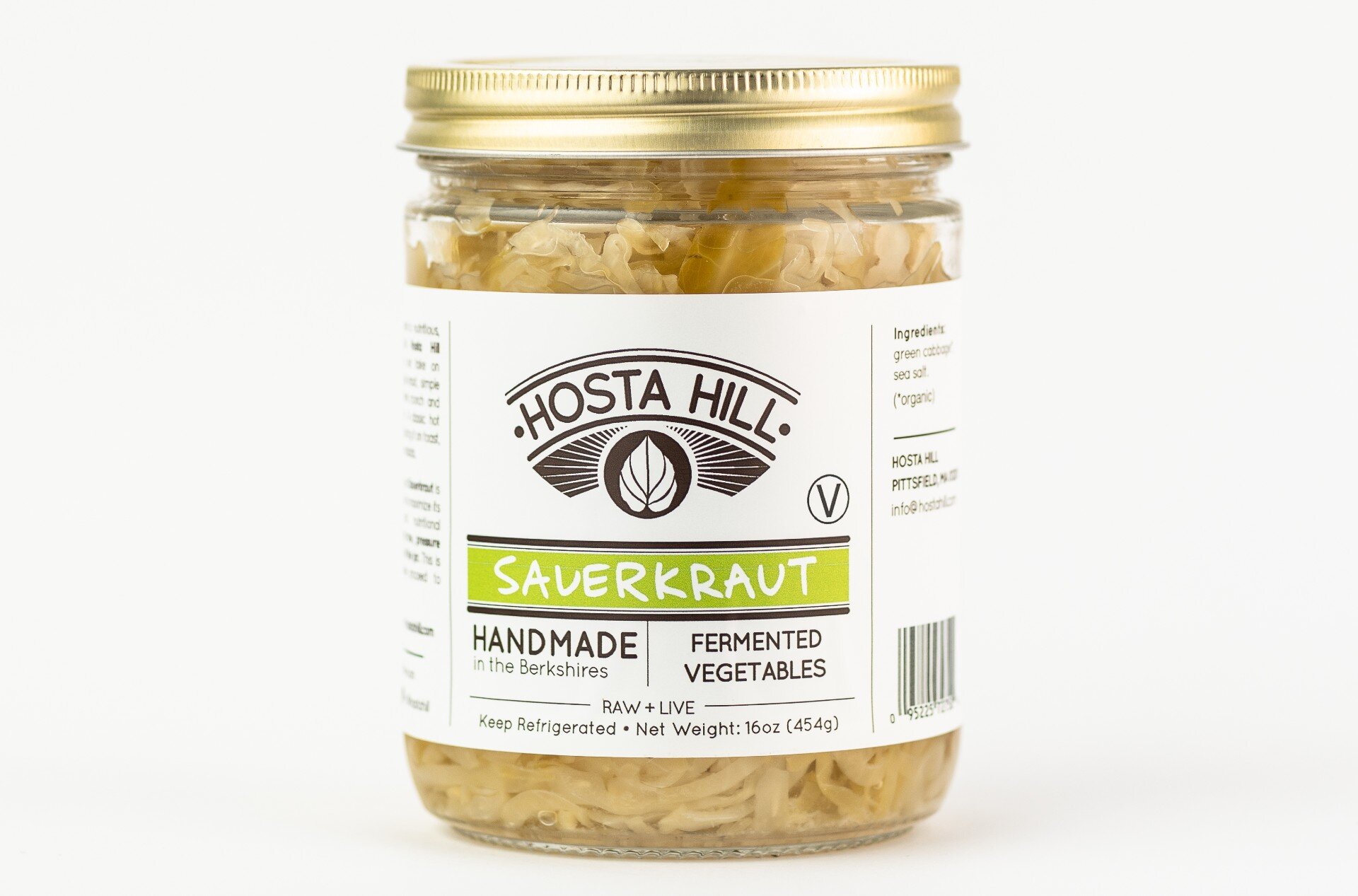If you’re asking, “can you freeze sauerkraut,” you might be surprised to learn this!
Some of us can easily work sauerkraut or some delicious ferment into every meal, or at least eat it every day. But let’s say you find yourself with a bounty of fresh, delicious fermented food and want to save some for down the road. You may ask, “can you freeze sauerkraut?”
Many of us have had nightmare experiences with food gone bad, or fear what will happen if it does. But if you are asking yourself whether you can freeze sauerkraut, a better question may be “should I freeze sauerkraut?” - and to that, we say, “probably not.”
To learn more about what keeps ferments fresh, even out of the freezer, read on!
At Hosta Hill, we are committed to producing high-quality sauerkraut, packaged by hand and sold raw and unpasteurized. The unique and creative flavors in our cultured veggies develop slowly through wild fermentation, a natural preservation process that enhances nutrient availability and probiotic content.
In other words, our sauerkraut is extra good for you! Check out our online shop to see what krauts we have on offer today and experience our award-winning fermented veggies!
Fermentation is preservation
Sauerkraut has a German name, but this fermented superfood actually originated in China, where cabbage was fermented with rice wine 2,000 years ago to preserve it for the winter.
Fermentation in food processing is an ancient practice that predates refrigeration by a couple of thousand years. Lacto-fermentation prevents harmful bacteria from growing and extends the shelf-life of food.
So you simply shouldn’t have to freeze sauerkraut in order to enjoy it for a long time.
We feel our krauts and kimchi taste best if consumed within six months of being packaged, whether or not they have been opened. Each batch is marked accordingly. But raw, fermented vegetables can last much longer, and don’t really “go bad.”
In fact, as raw, live foods, our vegetable ferments never really stop fermenting. They keep doing the work to stop the ”bad” bacteria and molds that can make food spoil.
Freezing your sauerkraut may seem like a good way to ensure it lasts, but freezing means an end to the fermentation process, and that means stopping those “good,” health-promoting bacteria where they stand, and even killing some of them.
It’s true, ongoing fermentation means an evolution in flavor, crunchiness, acidity, etc. over time. But did you know that, if you keep the jar in the fridge, you will slow down the fermentation process? Instead of stopping it in its tracks through freezing, the good work can continue in the fridge, but slowly. In fact, we recommend keeping our jars cold this way. Keeping our ferments cool in the fridge is less about food safety and more about the best way to prolong the best flavor and crunch.
If you must freeze your sauerkraut…
If you really need to freeze sauerkraut, the process is simple. It must be fresh, but it can be cooked or raw. Simply use a clean spoon to move sauerkraut from the jar to an air-tight, freezer-safe container (or many small containers if you are freezing in portions). Be sure to leave room for the liquid to expand. It’s a good idea to label with the date.
Expect that when you defrost your kraut to eat it later, it may have changed texture and flavor, because there is a lot of liquid in sauerkraut.
It’s uncertain whether freezing sauerkraut kills the beneficial bacteria that make it such a superfood, but if you mostly eat ferments for their health benefits you should know that freezing may compromise them.
Getting Hungry?
We are a family owned, women run business based in Western Massachusetts and committed to producing high quality, naturally fermented foods! Our fermented vegetables are made the traditional way: no vinegar, just vegetables, sea salt, and time.

